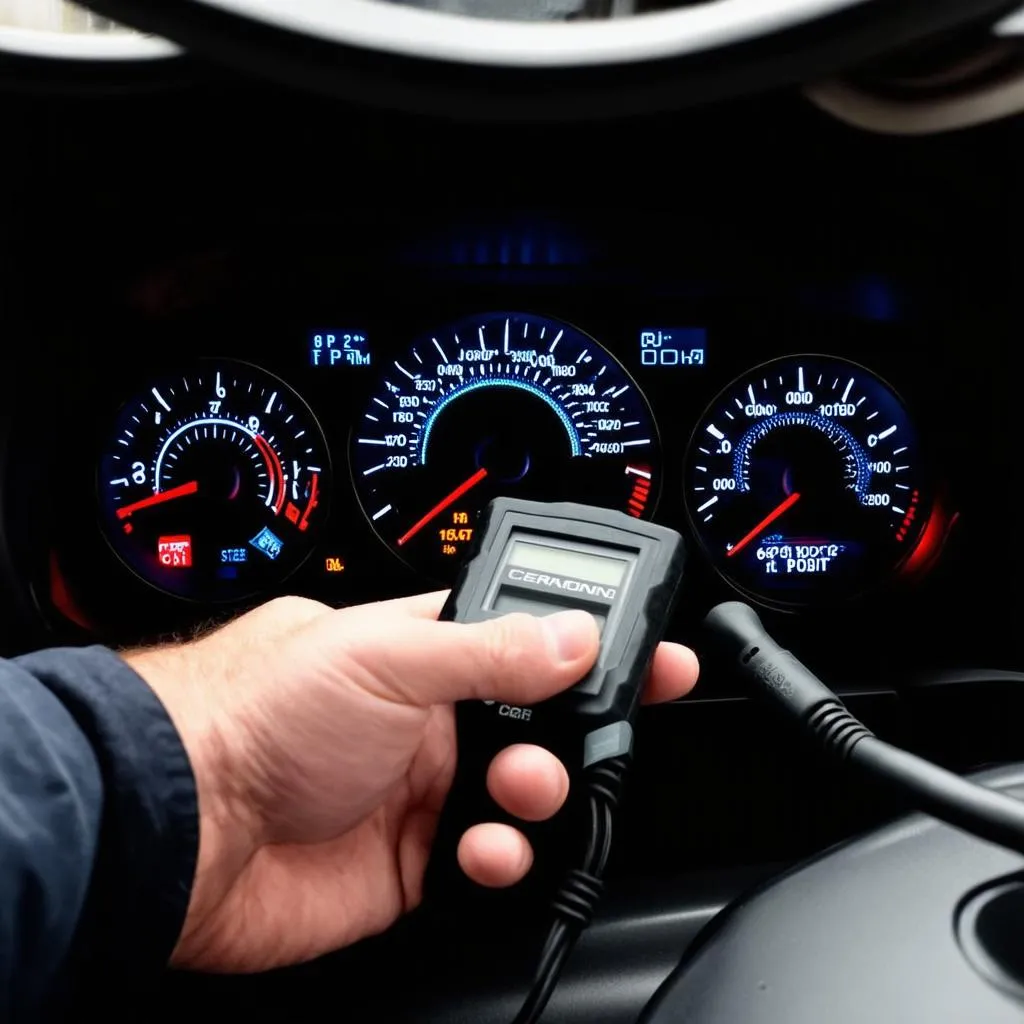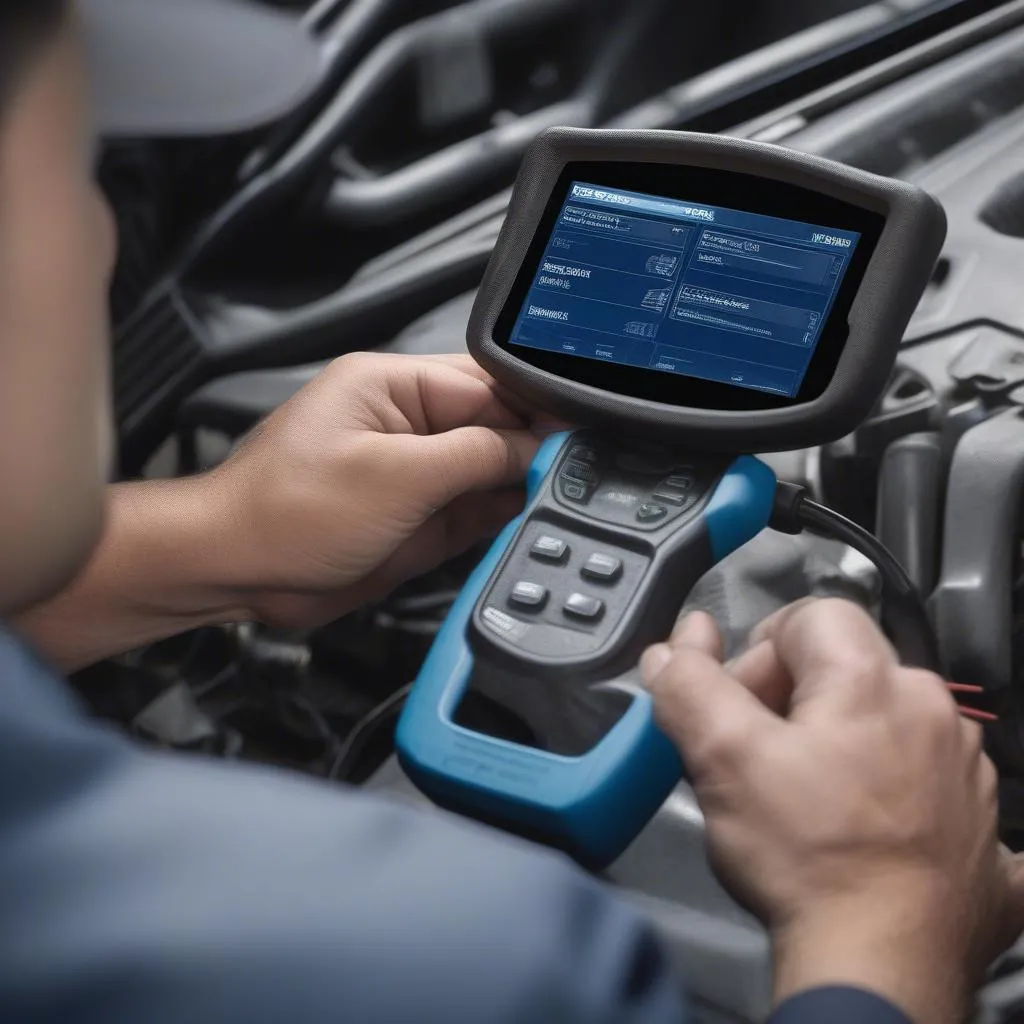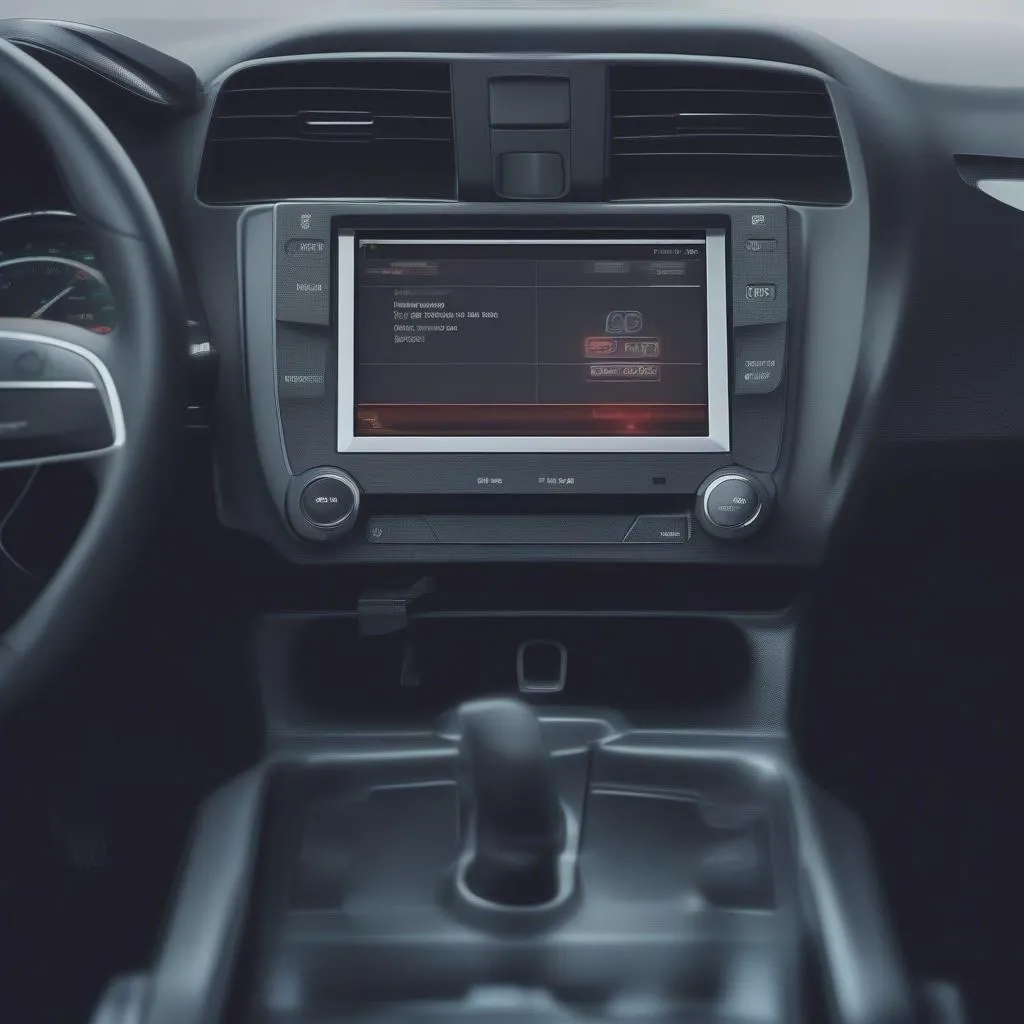Imagine this: you’re driving down the Pacific Coast Highway, California, sun shining, wind in your hair, when suddenly your check engine light throws a wrench into your idyllic road trip. You pull over, whip out your trusty scan tool, and plug it in, hoping for a quick fix. But instead of a clear-cut answer, you’re bombarded with a jumble of technical terms and those mysterious acronyms—OBD-II, DTCs, and of course, PIDs. If this sounds familiar, you’re not alone.
Decoding the Jargon: PIDs and Their Role in Car Diagnostics
Whether you’re a seasoned mechanic in a bustling Detroit auto shop or a car enthusiast tinkering in your garage, understanding PIDs is crucial for effective vehicle diagnostics.
So, What Does PID Mean on a Scan Tool?
PID stands for Parameter ID. In simpler terms, it’s a unique code that identifies a specific piece of data that your car’s computer (Engine Control Unit or ECU) monitors. Think of it as a name tag for each parameter the scan tool can read.
Why Should You Care About PIDs?
PIDs are the key to unlocking valuable information about your car’s health. They provide insights into various systems, such as:
- Engine Performance: RPM, fuel pressure, ignition timing
- Emissions Control: Oxygen sensor readings, catalytic converter efficiency
- Transmission: Fluid temperature, gear position
- And many more!
By reading the data associated with specific PIDs, your scan tool can pinpoint the source of problems, helping you diagnose issues accurately and efficiently.
PIDs in Action: A Real-World Example
Let’s say your car is experiencing rough idling. Instead of blindly replacing parts, you can connect your scan tool and check the PIDs related to engine idle speed, airflow, and fuel trim. This targeted approach allows you to pinpoint the root cause, whether it’s a faulty sensor, a vacuum leak, or a fuel delivery problem.
“Understanding the significance of PIDs is paramount for any mechanic,” says automotive expert Daniel Carter, author of “Advanced Automotive Diagnostics.” “It’s akin to a doctor interpreting blood test results – each PID offers a vital clue about the vehicle’s overall well-being.”
Common PID Categories and Their Uses:
- Calculated PIDs: These are derived from sensor data and provide insights into complex parameters like fuel economy and horsepower.
- Manufacturer-Specific PIDs: As the name suggests, these are unique to each car manufacturer and provide access to more specialized data.
- Standard PIDs: Defined by the OBD-II standard, these are common across most vehicles and cover essential engine and emission parameters.
Tips for Using PIDs Effectively
- Consult your vehicle’s service manual: This will list the specific PIDs supported by your car model.
- Utilize a professional-grade scan tool: Advanced scan tools like those from Autel offer extensive PID coverage and data logging capabilities. Check out our article on “How Autel Updates Work” to learn more about keeping your scan tool software current.
- Cross-reference PID data: Don’t rely on a single PID; compare related parameters for a more accurate diagnosis.
 Scan Tool Dashboard
Scan Tool Dashboard
Beyond PIDs: Exploring the World of OBD-II
PIDs are just one piece of the puzzle in the world of On-Board Diagnostics (OBD-II). To become a true diagnostic pro, dive deeper into:
- Diagnostic Trouble Codes (DTCs): These are standardized codes that indicate specific malfunctions detected by your car’s computer.
- Freeze Frame Data: This snapshot of your vehicle’s operating conditions at the time a fault occurred can be crucial for diagnosis.
- Mode 6 Data: This advanced diagnostic mode provides in-depth information about the performance of your vehicle’s emission control system.
Interested in learning more about OBD-II functions? We have an informative article on “CAN OBD-II Scan Tool Functions & Reset TPMS” that you might find helpful.
 Mechanic Analyzing Scan Tool Data
Mechanic Analyzing Scan Tool Data
Need Help with Your Car Diagnostics?
Understanding and utilizing PIDs effectively can be the difference between a quick fix and hours of frustration. If you’re ever unsure about a diagnosis or need assistance navigating the world of automotive diagnostics, don’t hesitate to reach out to our team of experts at +84767531508 via WhatsApp. We’re available 24/7 to provide support and help get you back on the road.
We also have a wealth of resources on our website, Diag XCar, covering various topics related to car maintenance and repair. For instance, you might find our articles on “Definition du Mot Autel” or “Autel MD805 Update Cost” useful.
Keep Your Engine Running Smoothly
By mastering the language of PIDs and embracing the power of modern diagnostic tools, you can empower yourself to keep your car running smoothly for years to come. Remember, knowledge is power, especially when it comes to the intricate workings of your vehicle.


